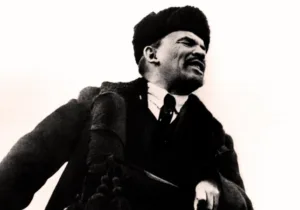Thirty years ago this week, God brought down the Berlin Wall. Few expected he would, or at least not so quickly. The electrifying events that cascaded through the autumn of 1989 in Eastern Europe were like spring lightning, crackling and suddenly illuminating dark skies.
In retrospect, nobody should have been shocked. Of course, any force erecting itself against the laws of God and nature cannot endure, Marxist-Leninist or otherwise. The Soviet Empire rested on atheism, repression, murder, torture, barbed wire, and lies. It was doomed to failure.
But few if any in 1979 expected such collapse in 1989. In the 1970s, Soviet power and Marxism seemed not just secure but surging. America had lost Indochina, which was firmly Sovietized. New Marxist regimes were enthroned throughout Africa, often assisted by Cuban troops. Soviet and Cuban insurgencies were ascendant in Central America. Afghanistan was soon invaded and seemingly conquered. Growing Soviet military power outmatched America’s, and the Western Allies were increasingly defeatist. A decade of stagflation left capitalism deflated, and socialism was almost appealing. Permanent coexistence with Soviet power was the best hoped-for scenario. Soviet global strategic ascendancy was not unthinkable.
But the Soviet Empire overreached, as empires always do. The Afghanistan invasion was arguably a key step toward imperial demise, launching an unwinnable war, rallying the West, provoking the Islamic world. There was also the election of a Polish pope, whose spiritual leadership and patriotism would inspire Polish laborers to strike and resist. The attempted suppression of Solidarity by Poland’s military, striving to avert direct Soviet intervention, helped ensure the end of Polish and East European communist regimes and the Warsaw Pact.
These events subversive to Soviet might were accompanied by a wider Christian renaissance and resistance throughout Eastern Europe that included Catholics, Orthodox, and Protestants. Governments repressed and subverted churches. But courageous clergy and laity increasingly exploited the few avenues they had to air their independent claims to God-ordained dignity. They were beaten, jailed, and sometimes killed, but they persisted.
These courageous souls behind the Iron Curtain were encouraged by the increasing rhetoric of solidarity from newly emboldened Western leaders no longer shackled by the malaise of the 1970s. Western economies recovered from the previous decade’s slump, and renewed commitment to free markets led to a decade of economic growth that revitalized democratic spirits. Communism never seemed drearier or more dated. Gorbachev-era attempted reforms of communism predictably flopped, underscored Marxism’s intractable failures, further amplified resentment, and fed desires for more freedoms.
In defeating the Soviet Union and bringing down the Berlin Wall, God deployed many instruments, willing and unwilling: Reagan, Pope John Paul II, Thatcher, Kohl, Lech Walesa, Gorbachev, countless and mostly unnamed resisters behind the Iron Curtain and in the Gulags, millions in the West who supported decades of costly Cold War containment, and the many saints on earth and in heaven who prayed for decency to prevail over brutality. God vindicated their prayers.
Of course, after divine deliverance, there’s always ingratitude. The fall of the Berlin Wall didn’t live up to expectations, we are now told. Troubles continue, human nature remains unchanged, and utopia hasn’t yet been achieved. There’s sometimes even the hint that the supposed stability of the Cold War was preferable to today.
Blasphemously absurd. Eastern Europeans are now freer, wealthier, and healthier than ever before, like most of the world. Prisons there no longer hold political and religious dissidents. Churches thrive even amid secularism. Minds are free to share thoughts, and regimes no longer command obedience to falsehoods. NATO and Warsaw Pact countries no longer confront each other. Soviet troops and nukes in Eastern Europe are gone, and world war is far less likely.
So this week’s commemoration of the Berlin Wall’s collapse is a time for rejoicing, thanksgiving, and remembrance of the valiant and saintly whom God used to make possible what was thought impossible. May we replicate their courage, patience, and perseverance for global challenges ahead.
And may we learn the right lessons—not to despair, not to take for granted our liberties and blessings, not to expect perfection in pursuit of the common good, and not to forget that God superintendents the affairs of humanity. He peacefully brought down the once bristling Soviet Empire through often unlikely and seemingly weak human agents. What will he do next in the world? Expect to behold more wondrous surprises for the good of all.






